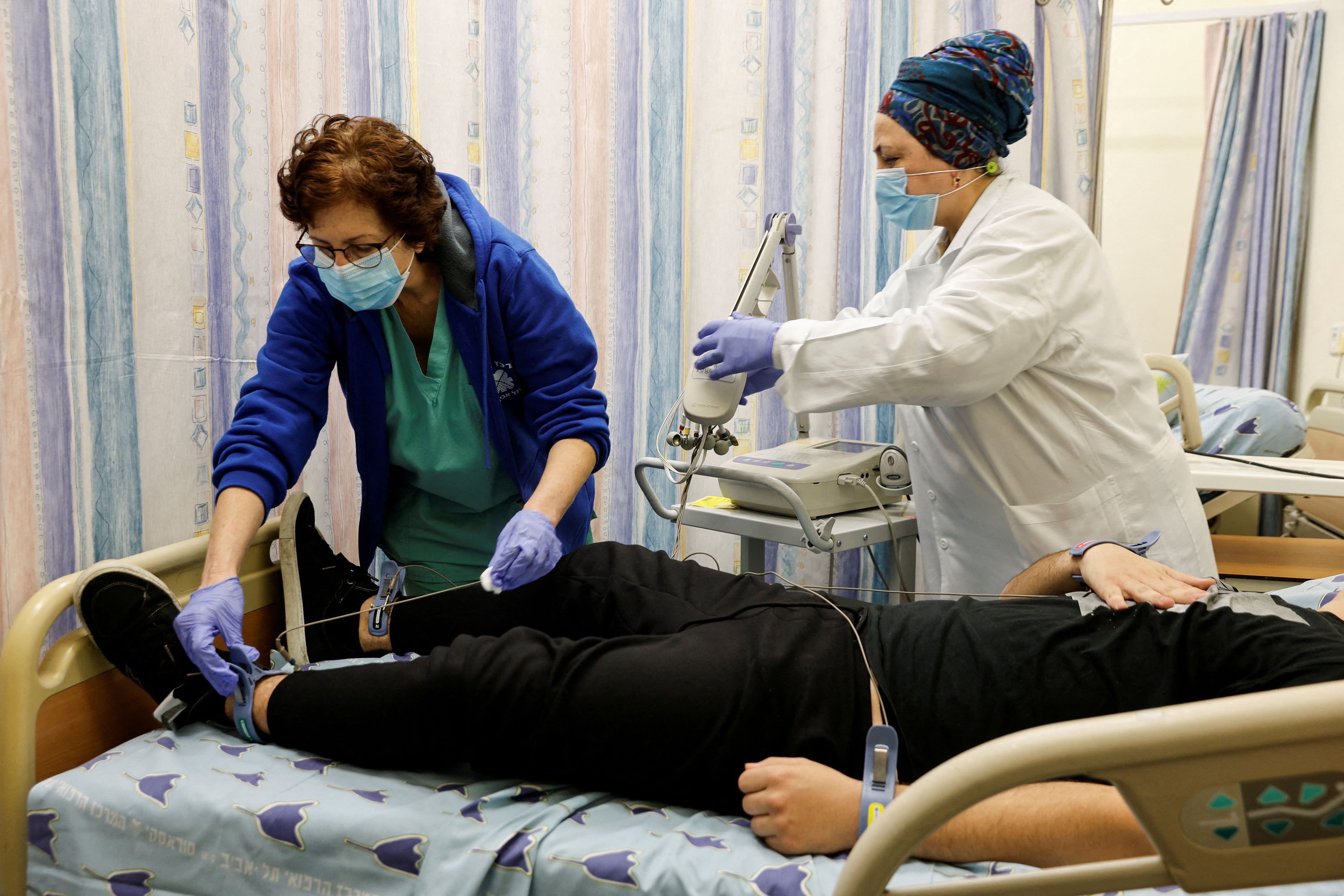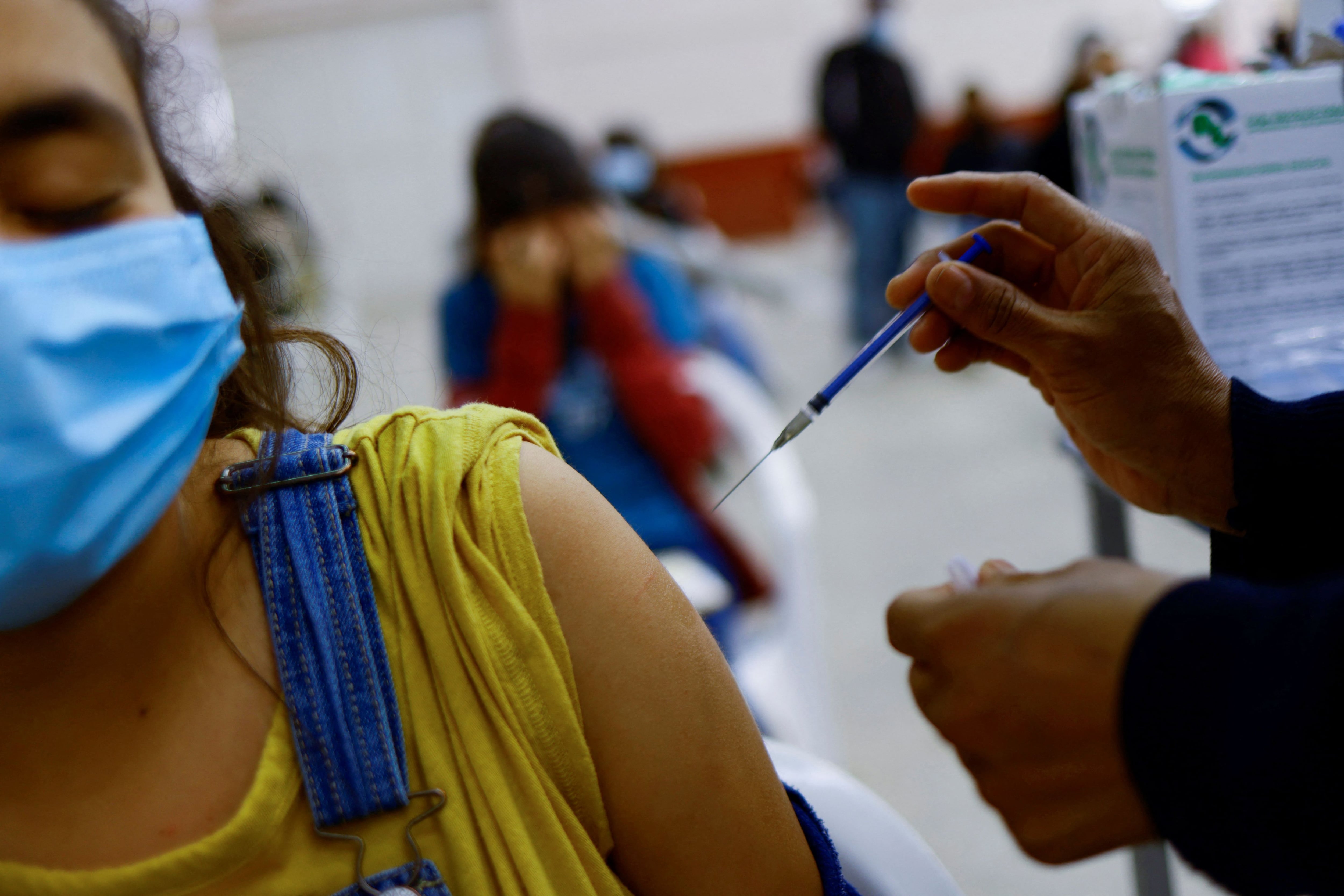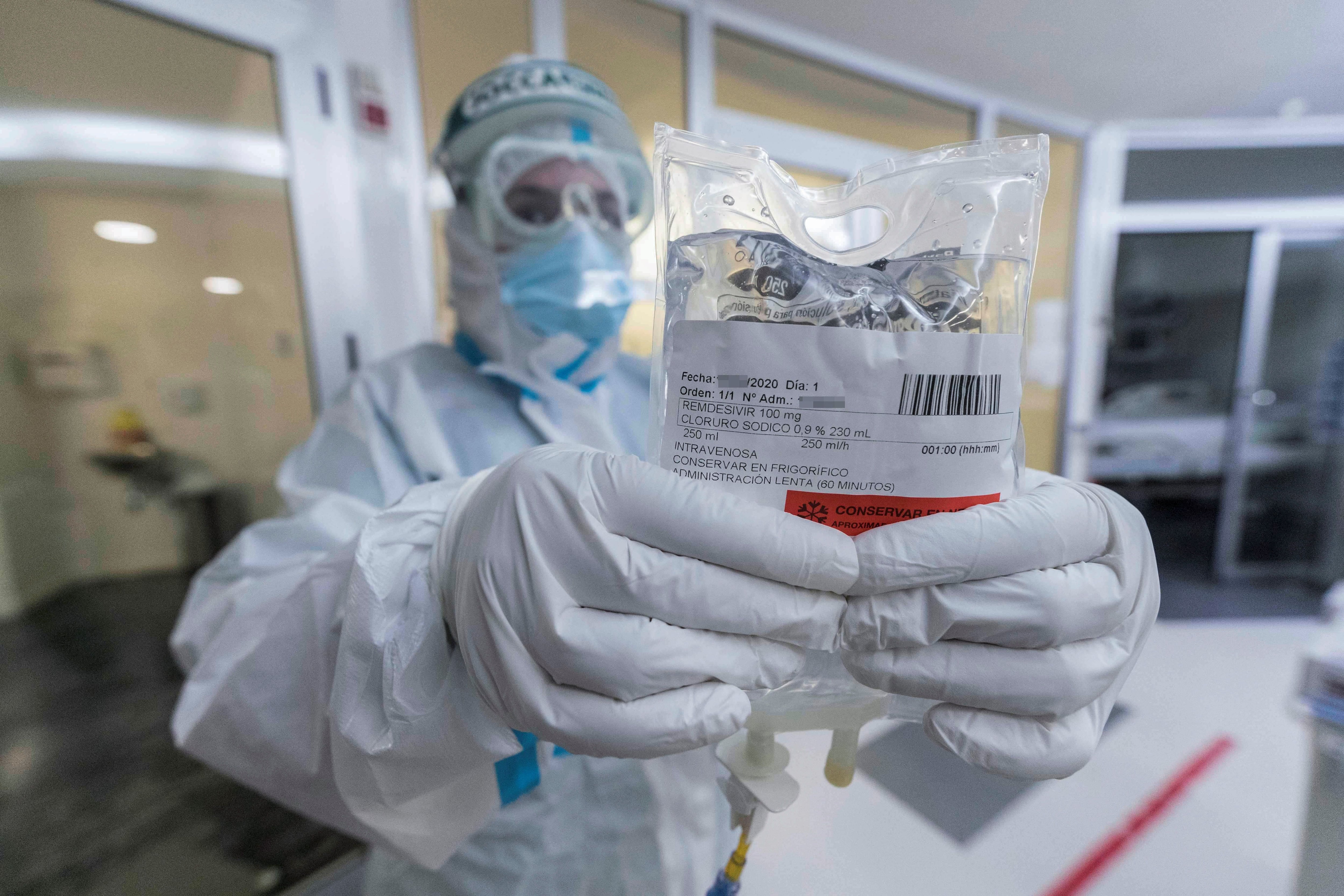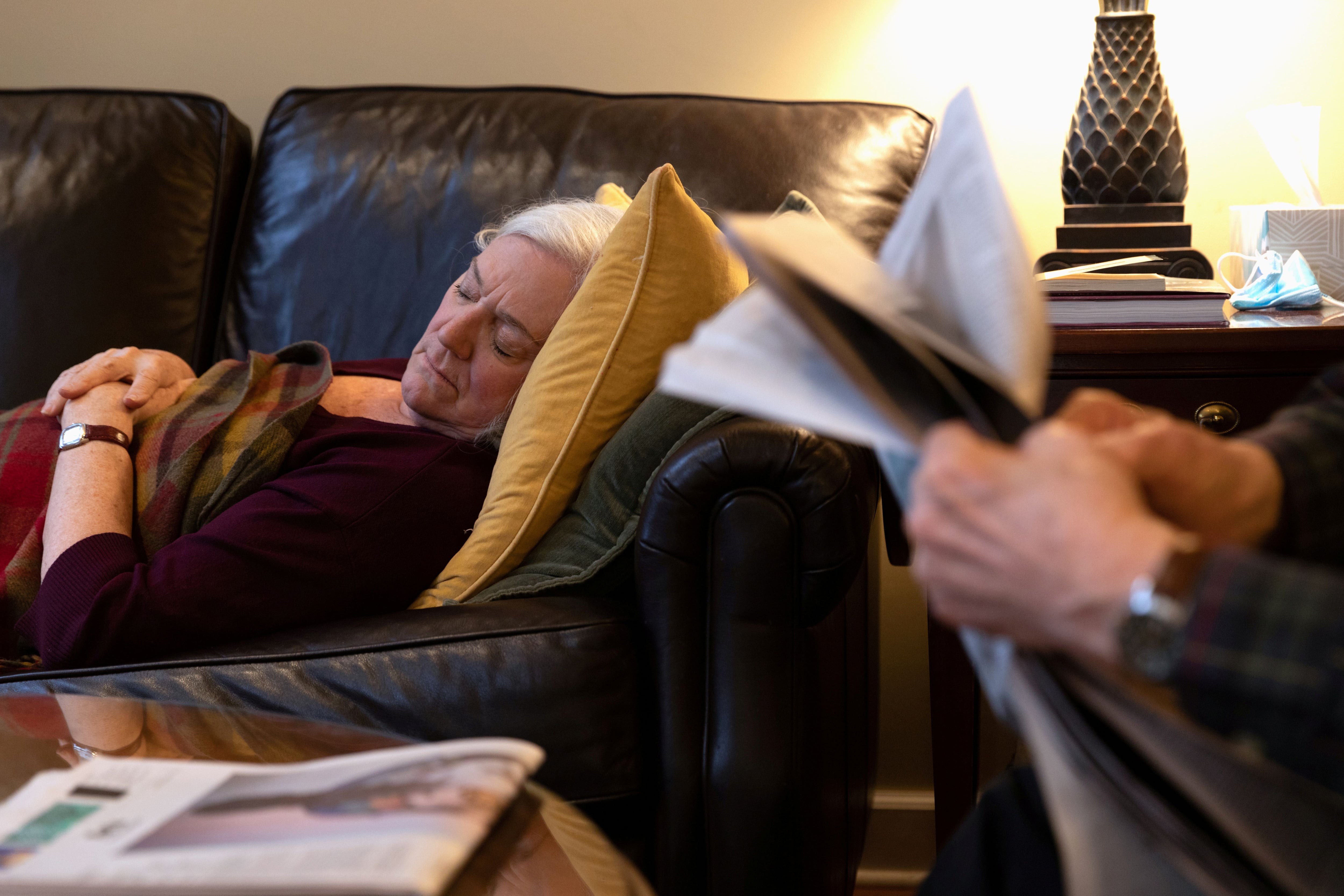
They call it post-COVID, prolonged COVID, or long COVID, and it is the long-term disorder that can arise after developing acute coronavirus infection. It affects adults and children. Today it is estimated that there would be up to 205 different symptoms associated with post-COVID. Today there are researchers who are conducting clinical trials to study whether treatments for the acute phase of coronavirus infection also help prevent the sequelae.
One of the researchers is urologist and clinical epidemiologist Kari Tikkinen, from the University of Helsinki, Finland. Since the start of the pandemic, Tikkinen has launched itself to lead clinical trials of COVID-19 therapies, and now hopes to know more about whether treatments administered during the acute phase of COVID-19 may reduce the risk of experiencing symptoms months later.
Having long-term treatments to control COVID “is an urgent and pressing health need that we need to start focusing on,” said intensive care specialist Charlotte Summers, from the University of Cambridge, in the United Kingdom, in dialogue with the journal Nature.
Long-term COVID is usually defined as symptoms of infection that last more than three months. People who experience it live with a wide range of symptoms, ranging from mild to severely debilitating. Researchers have proposed a number of causes for this disease: from persistent viral reservoirs, through autoimmunity, to small blood clots. Many believe that a mixture of these factors is to blame.

So far, vaccines are known to be the best way to prevent long-lasting COVID. Vaccines reduce the risk of infection with SARS-CoV-2, and could reduce the risk of prolonged COVID after infection in someone who has been vaccinated.
Several studies have looked at this issue: although they have yielded divergent results, the general trend suggests that vaccination could reduce the risk of long COVID by about half among those who become infected after vaccination.
For example, a study that has not yet been peer-reviewed found that vaccination reduced the chances of developing symptoms of long COVID by approximately 41% in more than 3,000 doubly vaccinated participants who subsequently became infected with the coronavirus. But there are some vaccinated people who get infected. Although many of them do not require hospitalization or develop serious conditions, they can suffer from long-term COVID. Therefore, it is important to follow preventive measures such as wearing a mask, ventilation, distancing and hand washing.
Beyond vaccination, it is not clear whether any existing treatment against COVID-19 has any effect on the risk of long-term COVID. In theory, a drug that reduces the severity of the disease could reduce the severity of symptoms in the long term. But long-term COVID is not always associated with a serious acute illness.

However, some studies plan to analyze the impact of early treatment with antiviral drugs on long-term COVID. A clinical trial has been testing the effects of the oral antiviral molnupiravir, developed by the MSD laboratory in Kenilworth, New Jersey, and Ridgeback Biotherapeutics in Miami, Florida, on the severity of COVID-19.
Although not the primary objective of the study, researchers will collect data from participants three and six months after treatment. This could determine if the drug reduces the risk of long-term COVID. There are also two trials with the antiviral Paxlovid, a drug developed by the company Pfizer. They will include a follow-up of participants after six months.
In the case of Dr. Tikkinen and his colleagues, they hope to learn more about the long-term impact of treatments received by those hospitalized with COVID-19. His team is tracking participants in the University of Helsinki branch of the World Health Organization's international COVID-19 treatment trial, called SOLIDARITY.
In the coming weeks, it expects to have the results of a one-year follow-up study of participants who were hospitalized with COVID-19 and treated with the antiviral drug remdesivir. Your team will also follow up with participants in two other arms of the SOLIDARITY trial, one that tried an immunosuppressive drug called infliximab and another that tried imatinib, a drug that could help reduce blood vessel inflammation.

But, as Tikkinen warned, none of those studies had enough participants to give clear answers about prolonged COVID. His team took extraordinary steps to contact participants months after their treatment with remdesivir and encourage them to fill out a survey about their symptoms. The team hired graphic designers to make the surveys easier to fill out, had questions translated into ten languages, and offered to hand deliver paperwork to participants' homes.
The result was a 95% response rate, which according to Tikkinen is unusually high for this type of long-term study. But since the original study only included about 350 people, it is probably still too small to offer a definitive conclusion.
Also in the UK, a large trial is taking place called “HEAL-COVID”. It is testing two drugs aimed at the cardiovascular system in people who have been hospitalized for COVID-19. One, called apixaban, is an anticoagulant. The other, atorvastatin, is a drug that lowers cholesterol and inflammation of blood vessels. The study will investigate whether either treatment reduces hospitalizations and deaths in the year after hospital discharge.

Nearly one-third of people discharged after COVID-19 treatment are re-admitted within six months, and 12% die within six months of initial discharge. “And when we looked at what most plausibly leads to death after hospitalization, it was probably cardiopulmonary effects,” according to Dr. Charlotte Summers, who leads the study.
At the University of Chicago, United States, pulmonologist and intensive care physician Ayodeji Adegunsoye has observed a possible increase in the accumulation of scar tissue, called fibrosis, in the lungs long after acute infection in people who were hospitalized with COVID-19 and needed supplemental oxygen. It is now testing a drug called sirolimus — an immunosuppressive drug sometimes given to organ transplant recipients — on those people, hoping it will prevent the migration of fibrosis-promoting cells in the lung.
By their nature, studies of long COVID require patience: a commonly accepted definition of long COVID is the persistence of certain symptoms for more than 12 weeks after acute infection. Immunologist Danny Altmann of the Imperial College in London felt that he is optimistic that progress will be made this year. But he suggested that we should not give too much importance to small trials that might not yield statistically significant results. “There's a lot of pressure. There is an incredibly pressing and desperate need: we all feel that anxiety,” he acknowledged.
KEEP READING:
Últimas Noticias
Debanhi Escobar: they secured the motel where she was found lifeless in a cistern

The oldest person in the world died at the age of 119

Macabre find in CDMX: they left a body bagged and tied in a taxi
The eagles of America will face Manchester City in a duel of legends. Here are the details

Why is it good to bring dogs out to know the world when they are puppies




